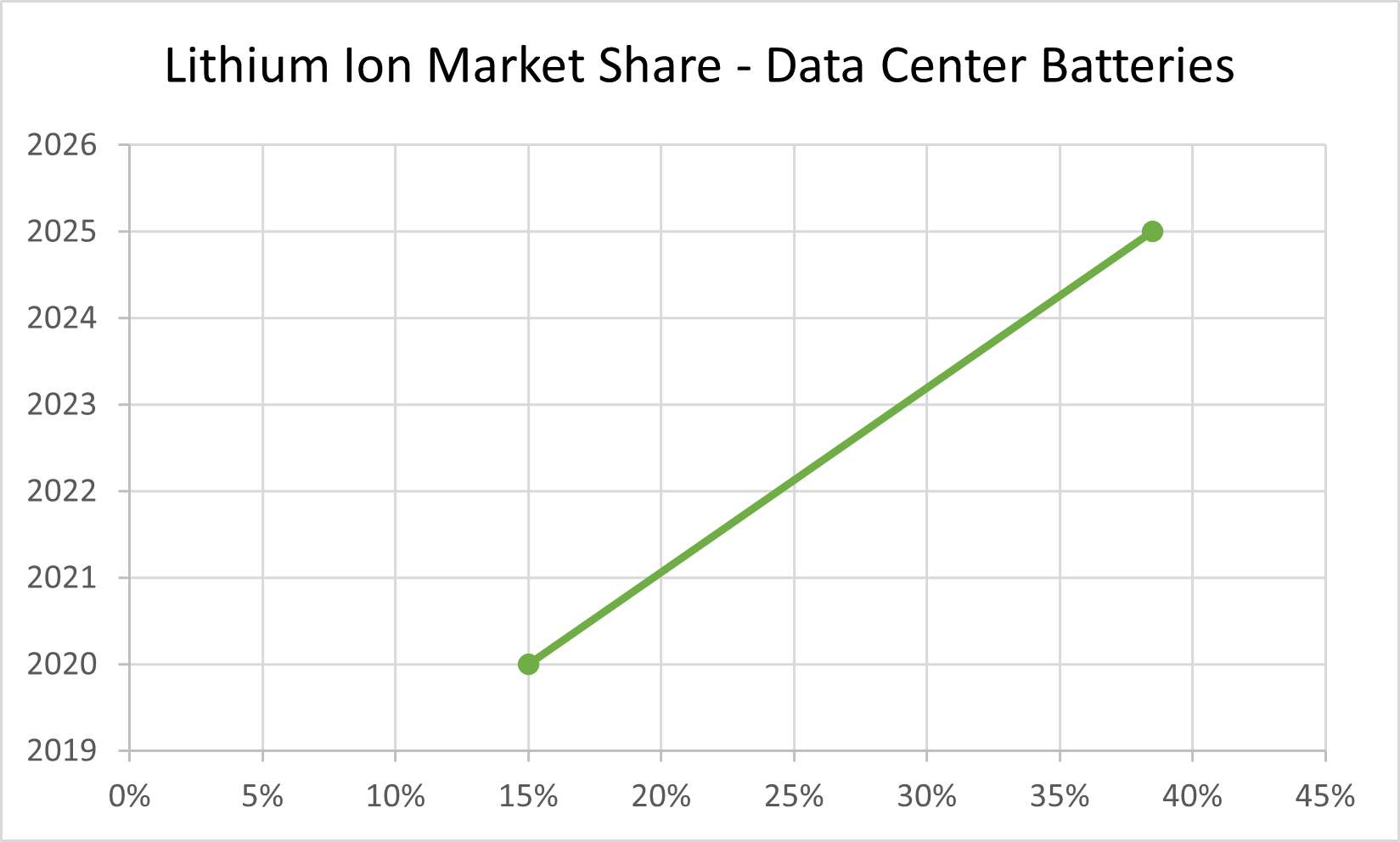The National Fire Protection Association stated that “lead acid batteries are significantly less prone to fires than lithium ion batteries,” but the use of lithium-ion batteries in data centers is increasing rapidly.

Many data center owners do not fully evaluate the risk of lithium-ion battery deployments.
- Thermal runaway, which is when heat builds up in a battery faster than it can be dissipated, is a challenge for fire protection systems to contain.
- Some experts believe that the industry does not completely understand all of the failure modes of lithium ion batteries.
- Fires in lithium ion batteries caused major data center outages in South Korea and
What’s Next:
- Data center owners implementing lithium-ion batteries should evaluate their fire protection strategy and validate if it is sufficient for the increased risk.
- This includes checking with local authorities and regulatory agencies to see if any lithium ion regulations are in place.
- A way to reduce risk: segregate lithium ion batteries into their own room.
- A separate battery room should have fire-rated walls and ceiling.
- The best fire suppression approach today for lithium ion energy storage is a multi-layered and includes
- Early detection system
- Clean agent (like Novec 1230)
- Water-based backup.
Go deeper:
Frost & Sullivan analysis of market share for lithium ion batteries in data centers
Network World report on fires caused by lithium ion batteries and top considerations for owners.
Uptime Institute report on the fire at SK Group data center in South Korea, reportedly caused by Lithium Ion batteries.
NFPA Report on lead acid batteries, which includes a comparative risk statement of lead acid vs. lithium ion batteries.